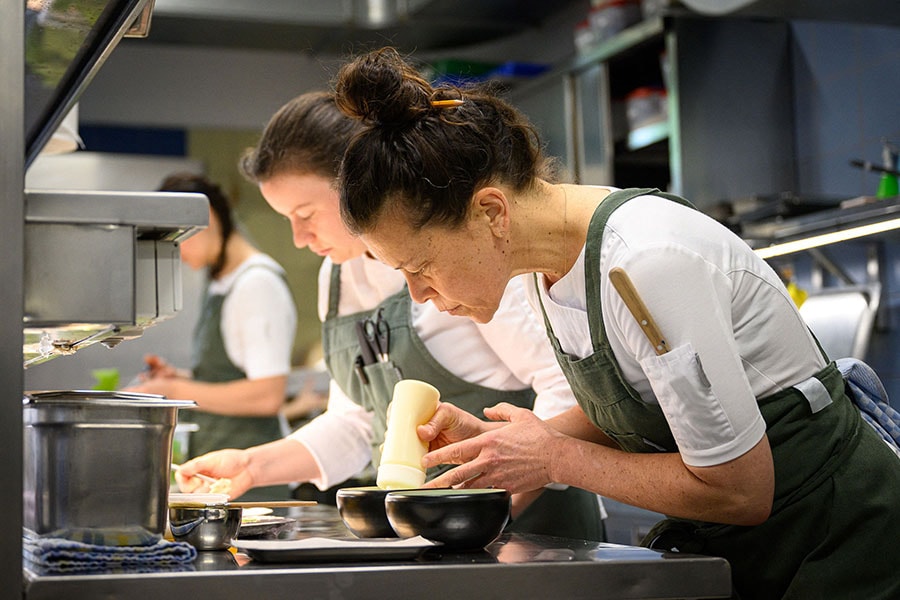
Star chef Ana Ros puts Slovenia on the food map
Now the self-taught cook—who was named the world's best woman chef in 2017—has her two Michelin stars tattooed on her fingers and is helping make her small Alpine homeland one of Europe's prime gastronomic destinations
 Hisa Franko restaurant's head chef Melle Simon (R) preparing a Slovenian dish in Kobarid
Image: Jure Makovec / AFP
Hisa Franko restaurant's head chef Melle Simon (R) preparing a Slovenian dish in Kobarid
Image: Jure Makovec / AFP
When Ana Ros started as a chef in Slovenia, all she had were some cookbooks and a bit of a "crazy" personality, as she herself puts it.
Now the self-taught cook—who was named the world's best woman chef in 2017—has her two Michelin stars tattooed on her fingers, and is helping make her small Alpine homeland one of Europe's prime gastronomic destinations.
Ros quickly found she had a talent for "matching crazy flavours", like coffee pasta with sea bass, lemon foam and basil, one of the early dishes that helped make her name.
"Like a painter sees colours, the chef sees flavours, and I was always very well known for using very strong flavour combinations," the 50-year-old told AFP at her restaurant in the Soca valley close to the border with Italy.
Hisa Franko—which Ros has been running for the last 20 years—currently ranks 32nd in the World's 50 Best Restaurants list.







